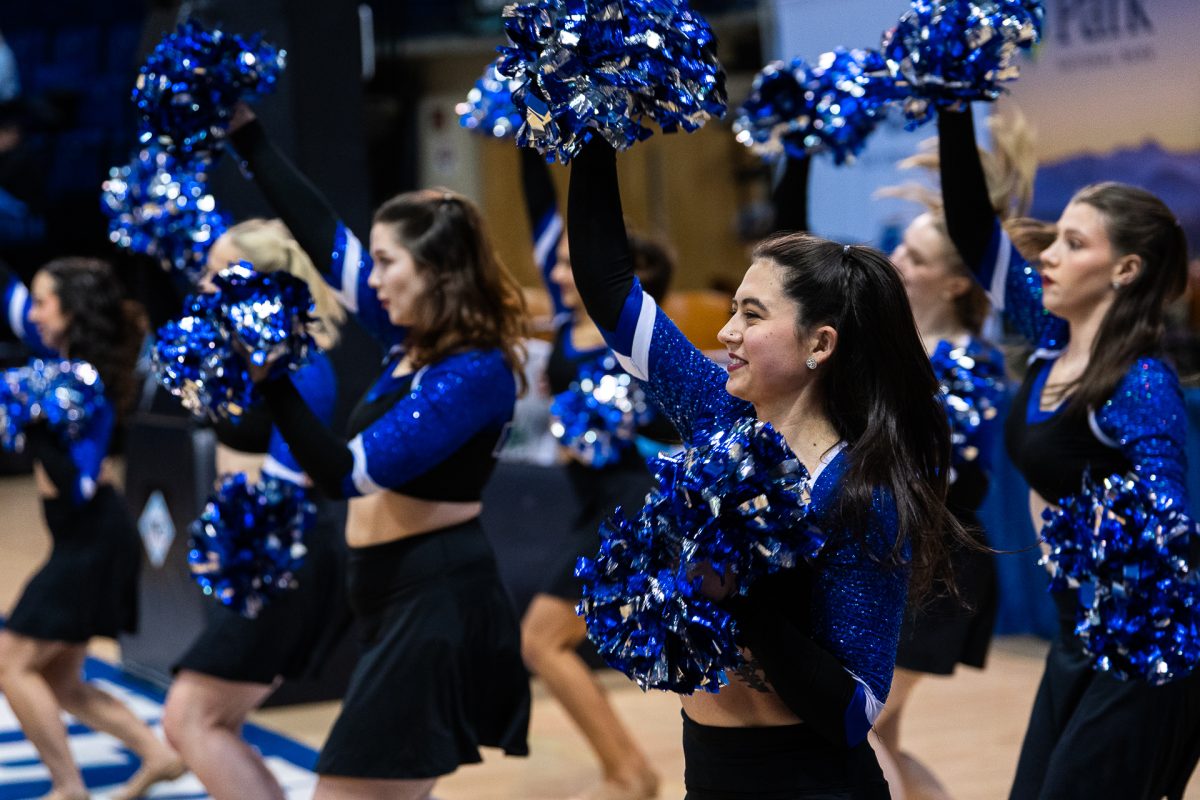By Jessica Brock
Sports Writer
[email protected]

The UNCA men’s soccer team takes on Northern Kentucky in their season opener on Aug. 26.
The image of a vaccinated, post-pandemic life has many UNC Asheville student-athletes looking forward to the future as professors hold classes mostly in-person and full-team interactions have resumed.
“Being with their whole team for practices and going to normal practice, in general, gives them an outlet outside of school to be themselves and grow more interpersonal connections,” said Madison Wilson, a junior and manager of the UNCA swim and dive team.
Last year, many athletes across the country struggled with the lack of access to their sports and dealt with an overwhelming number of mental health issues. In addition, many classes being virtual and the absence of social contact also majorly contributed to such mental health issues, such as increased anxiety, disrupted sleep patterns and a rise in depression rates.
Assistant Professor of Health and Wellness Laura Jones, who also acts as a mental health advisor to UNCA athletes, said she agrees with an NCAA report on pandemic-related mental health, which found student-athletes who were taking fully virtual classes reported higher rates of mental health struggles such as feeling overwhelmed or exhausted, feelings of loneliness, difficulties sleeping, feelings of anxiousness, depression or hopelessness.
Such challenges began to fade when UNCA athletics turned a prior year of heartbreak and doubt into one of the best overall competition seasons the university has seen in a while. Highlights include the men’s soccer team’s appearance in the Big South tournament for the first time since 2008, as well as the men’s tennis team’s claim of the regular season conference title and the women’s swimming and diving team’s fourth place finish at the CCSA Championships.
Wilson said she noticed this slight uptick in morale when hybrid classes began and traveling for competitions resumed.
“Given that some policies have been modified in alignment with NCAA, Big South, UNC System, county and university guidelines, teams are now able to have team practices and seasons that are somewhat more ‘regular,’ at least much more so than last fall. I absolutely think this will benefit our student-athletes a great deal,” Jones said.
Wilson said she also noticed, around campus, an increase in students going from class to class. For example, she mentioned how the line at Roasted is oftentimes backed up to the door of Highsmith and the library is full of study groups.
Director of Health and Counseling Jay Cutspec said student-athletes will be overall happier now that they can return to a relatively normal student life and be able to compete on schedule.
“I think moving to full-team practices will improve their overall physical and mental health and well-being,” Cutspec said.
However, with these drastic changes, back to in-person activities comes with having to balance getting to practices and classes on time and other time-management tasks. Members of health and counseling said getting used to more normal, longer schedules factors into this transition as many students’ schedules last year did not follow the typical rigid college schedules.
Cutspec said that while the resumption of normal daily activities without the interruption of COVID protocols may relieve some student stress, the continuation of mask-wearing and readjusting to the habit of getting to class on time may increase stress levels of some students.
For a vast majority of student-athletes, balance and structure significantly contribute to their routines. Any number of routine tasks and activities from having practice at certain times to finding time to study, can create excess stress but also give them the structure they are used to.
“For many athletes the lack of structure and normalcy surrounding their sport created a great deal of struggle,” Jones said.
Jones also said some transitions may create more stress than others, such as those of freshmen and transfer students who have not had the opportunity to make connections with others or learn their way around campus.
“Being in-person is, at some points, stressful with rushing to class because I feel like I have less time for myself between classes and practices, especially since I have no idea where any of the buildings are,” said Mikayla Fullerton, a junior and transfer swimmer at UNCA. “I was never given an official campus tour, so I feel kind of lost and stressed sometimes.”
Fullerton transferred from Queens University during the spring semester 2020. She said her transition did not feel as smooth as the college transition for the class of 2024 and attributes some of her added stress as a student-athlete to this. Although her experience isn’t as similar as transfers from this fall, transfers alike have to get used to the new surroundings and protocols of a different university.
Jones said each athlete experiences their own struggles with getting reacclimated to the new normal around campus, but the positive changes are a step in the right direction and offer a sense of gratefulness toward their sport and education.
“Having access to their sport as a coping mechanism and being able to spend time with teammates and build and have access to those social connections and support are essential,” Jones said.
With state, local and national restrictions becoming more relaxed in terms of facility usage and attendance of sporting events, athletes can begin to rejoin their teammates on the field in front of fans to cheer them on.
According to UNCA students and staff, starting the year off in such a positive way could help build off of the incredible competitive season UNCA athletics had last year and are excited to see what the future holds for UNCA athletics in the coming year.

















